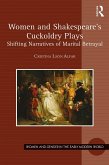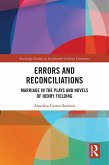William Congreve wrote his plays and his novella, Incognita¿ during a time of immense social and political upheaval. The revolution of 1688 brought with it a rash of new ideas. William and Mary were monarchs chosen by a Convention of Englishmen, not rulers chosen by divine right. And new ideas in philosophy and politics, most notably expressed in the writings of John Locke, gave a new shape to the way the world was perceived. Congreve, an ardent supporter of the dual monarchy and later of William III, was depicted by Charles Lamb and many later critics as writing comedies that had no connection with the real world. To the contrary, his writings reflect a strong engagement with the changes occurring in the social milieu of the time. The new sense of political liberty brought with it greater social equality; the lapse in the Licensing Act brought greater freedom in publishing. And while the attack upon the stage by Jeremy Collier in 1698 was to rein in some of the explorative nature of comedy during the 1690s, Congreve took advantage of the new freedoms from the events of 1688 to write sophisticated comedies that both exploited this liberation and criticised it.
This book attempts to examine Congreve's major writings in the light of these changes by beginning with what appears to have been the questions raised by what may be seen as skepticism about the family, the collapse of concepts of marriage and the debates over divorce that dominated the decade. The book demonstrates how Congreve's plays were very much a part of this; however, in his comedies, he always managed to achieve a light surface affect. This is perhaps never truer than in his first publication, his novella Incognita. Yet what appears to be an amusing series of mistaken identities resembling what was called a "Spanish plot" turns out to contain some serious questions about identity and some doubts about the way we understand our world. After demonstrating the political ambiguities of The Old Batchelor, the book shows how the betrayal of the family to which the lovers, Mellefont and Cynthia, are attached, by the sinister Maskall, is a fairly blatant attack on the politics of Jacobitism. Congreve followed this with the lighter Love for Love, which, beneath its odd Egyptian imagery, contains an attack upon the patriarchal concept of government still accepted by the followers of the deposed king, James II. In his tragi-comedy, The Mourning Bride, Congreve allowed his plot to carry the weight of the Whig rebellion, giving his lovers the epistemology of perception that belonged to the new world of the 1690s, compared to the uncontrolled passions of the past. In his final play, The Way of the World, he demonstrates how his lovers of 1700 reveal a combination of sensibility and canniness that make them capable of facing the complexities of the new century.
This book attempts to examine Congreve's major writings in the light of these changes by beginning with what appears to have been the questions raised by what may be seen as skepticism about the family, the collapse of concepts of marriage and the debates over divorce that dominated the decade. The book demonstrates how Congreve's plays were very much a part of this; however, in his comedies, he always managed to achieve a light surface affect. This is perhaps never truer than in his first publication, his novella Incognita. Yet what appears to be an amusing series of mistaken identities resembling what was called a "Spanish plot" turns out to contain some serious questions about identity and some doubts about the way we understand our world. After demonstrating the political ambiguities of The Old Batchelor, the book shows how the betrayal of the family to which the lovers, Mellefont and Cynthia, are attached, by the sinister Maskall, is a fairly blatant attack on the politics of Jacobitism. Congreve followed this with the lighter Love for Love, which, beneath its odd Egyptian imagery, contains an attack upon the patriarchal concept of government still accepted by the followers of the deposed king, James II. In his tragi-comedy, The Mourning Bride, Congreve allowed his plot to carry the weight of the Whig rebellion, giving his lovers the epistemology of perception that belonged to the new world of the 1690s, compared to the uncontrolled passions of the past. In his final play, The Way of the World, he demonstrates how his lovers of 1700 reveal a combination of sensibility and canniness that make them capable of facing the complexities of the new century.
Dieser Download kann aus rechtlichen Gründen nur mit Rechnungsadresse in A, D ausgeliefert werden.









